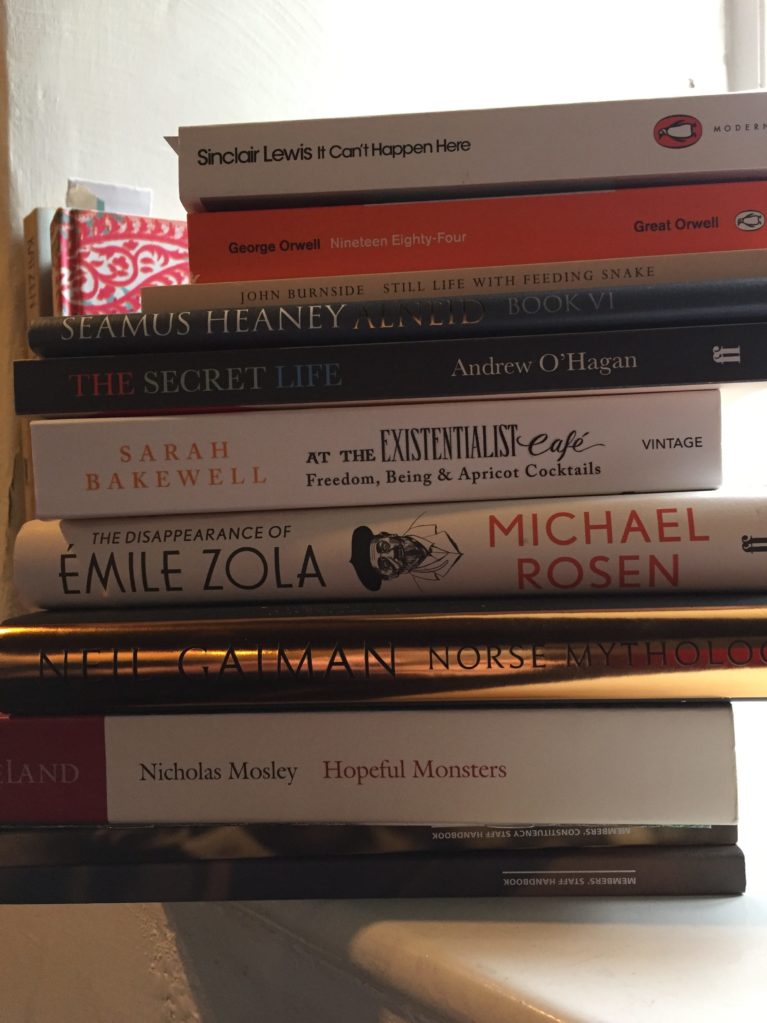Tom Shakespeare’s recent BBC Radio 4 essay about stories, and the need to drive policy through stories that work, stories that are based on facts and can be used as the basis of compelling narratives, resonated with something I’ve been thinking about recently so here are my ramblings. They also owe a lot to the Dark Mountain project, which has been increasingly shaping my waking and sleeping thoughts.
Art eats politics for breakfast.
The ideas from which we build our politics have to come from somewhere.
They come from
our parents
our family
our teachers
the social groups we inhabit or create
They come from the stories we are told
Both those that are true
And those that are made up but speak to truth
Today, as always, there are competing narratives. In some we are humane, and love. In others we tear things apart in fear.
Our goal is to tell the stories of the thing we want to be true, of the things we want to form the basis of our politics and thereby create the imaginative space needed for others to decide to build the world we envisage, a world in which the things we say are true are made true and the things we say are not true are not made true.
To make something (true), first make it imaginable.
We need to feed the dreams of the next generation of citizens, politicians, parents and storytellers. And we need to tell stories that can be retold from generation to generation.
Because the ways we tell stories change and old stories must be told in new ways
Because the details of the old stories become familiar, even if the message needs to be transmitted
Because the sets used to wobble and the makeup was obvious and the actors would ham it up.
Because the faces of the storytellers are no longer famous or familiar or exciting.
And because each generation grows in the shadow of another and the way the light falls changes.
Because each generation wishes to cast its own shadow.
Civilisation will never be finished, and the thought that there is ‘progress’ is a story that we should be trying to untell. What we have built will always decay, whether a temple or an idea, and it will need to be rebuilt, reaffirmend and revised. This is normal. This is to be expected. This is the real world.
If we want to retain a memory across the institutional generations we can embed it into practice so deeply that those carrying it out are not even aware of the story they are telling, or we can hide it in stories that they will want to retell.
And because there will be times when it is important to know where the story came from and what it used to say, we need to retain, somewhere, enough to reconstruct its history and origins.
When the journalist Joan Didion wrote ‘we tell ourselves stories in order to live’ (in The White Album, 1979) she was expressing a deep truth about how we construct meaning in our lives. Now we need to find stories that will help us thrive.
